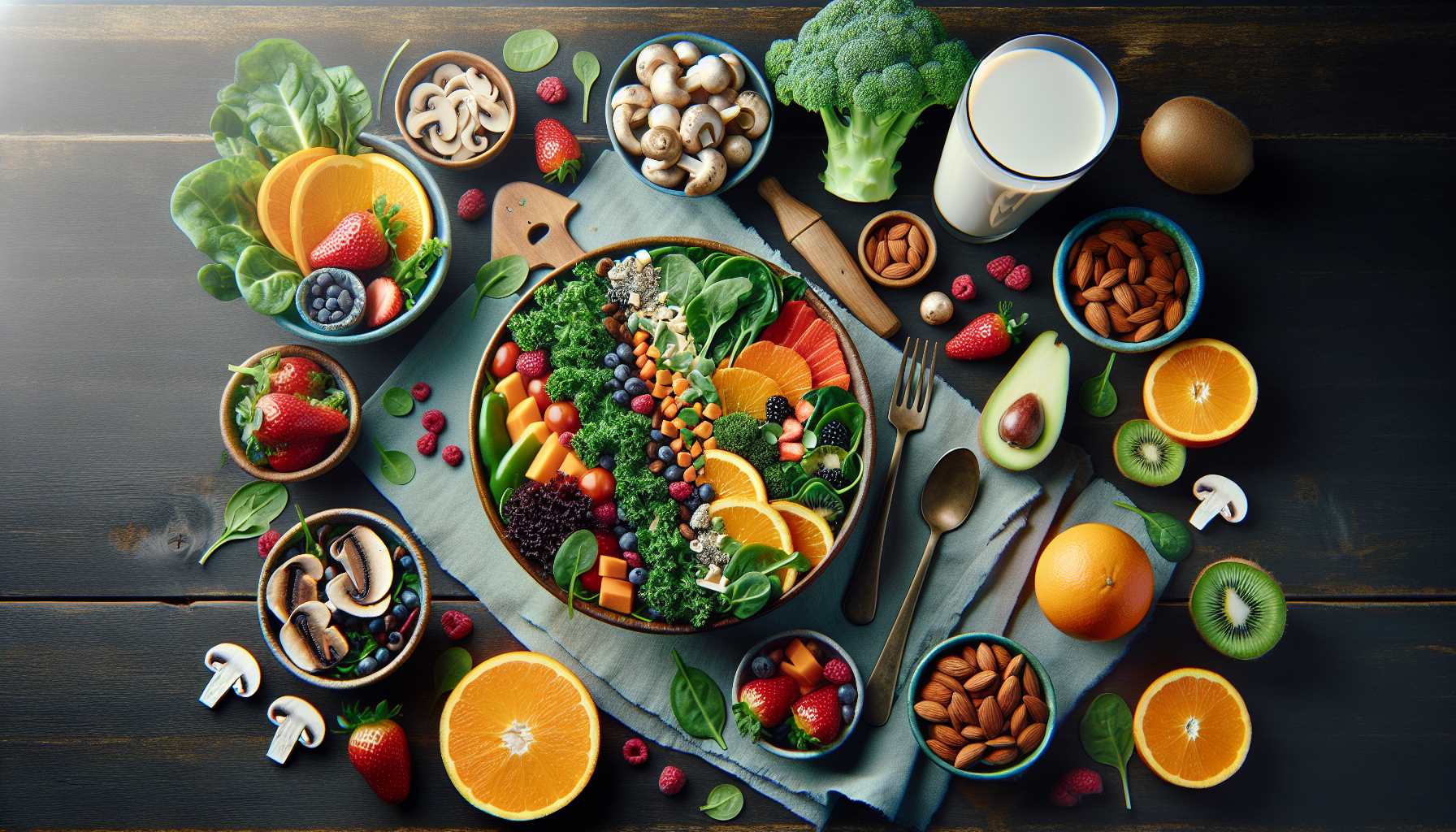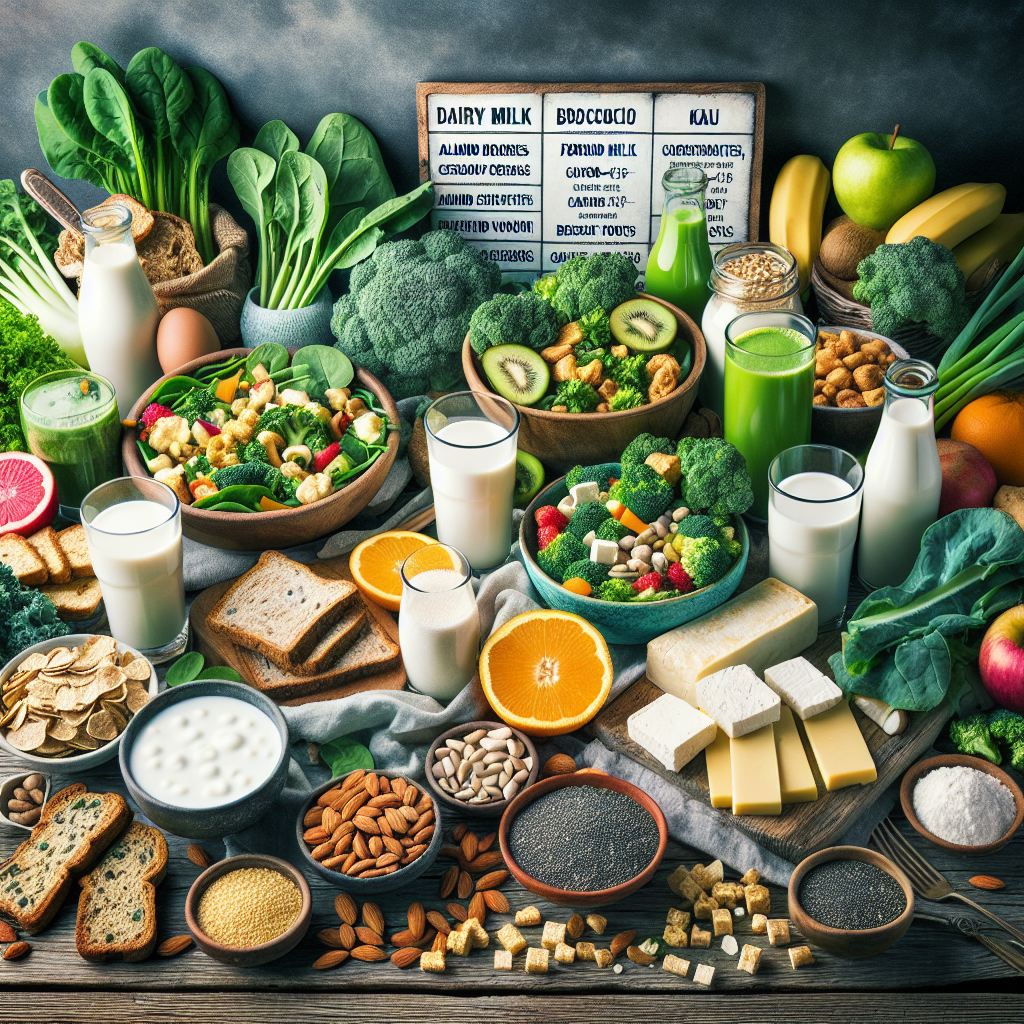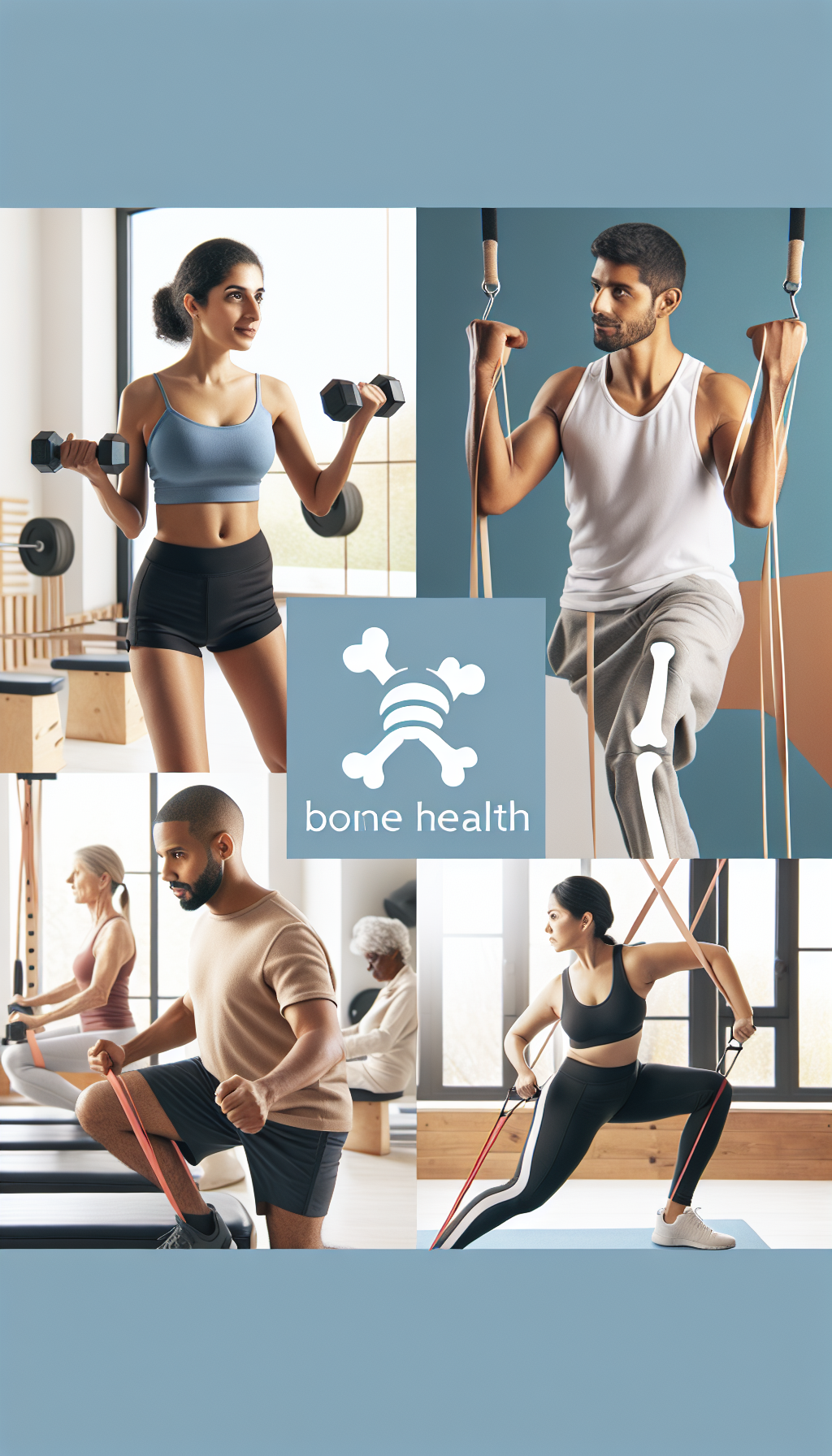Maintaining strong and healthy bones is a crucial aspect of overall health. For vegetarians, ensuring that their diet supports bone strength is especially important due to the omission of certain traditional sources of bone-supporting nutrients like calcium and vitamin D, typically found in abundance in animal products. In this comprehensive guide, we’ll explore strategies for vegetarians to enhance bone health, ensuring a robust skeletal system throughout all stages of life.
Understanding Bone Health
Our bones are living tissues that continuously break down and rebuild. Bone health is determined by factors such as nutrient intake, physical activity, and hormonal balance. For vegetarians, obtaining adequate amounts of certain nutrients can be more challenging, necessitating a well-planned diet and lifestyle.
One key aspect of bone health that vegetarians should be particularly aware of is calcium absorption. For more insight on this topic, consider reading about Maximizing Calcium Absorption for Bone Strength, which provides valuable information on how to enhance the bioavailability of calcium from plant sources.
Essential Nutrients for Bone Strength in a Vegetarian Diet
Calcium: The Building Block of Bones
Calcium is the most abundant mineral in the body and a critical component of bone health. Vegetarians can obtain calcium from a variety of plant-based sources such as fortified plant milks, tofu made with calcium sulfate, leafy green vegetables, and almonds. It’s also beneficial to understand the balance between calcium and other minerals like phosphorus, which is explained in depth in Balancing Phosphorus with Calcium for Bone Health.
Vitamin D: The Sunshine Vitamin
Vitamin D is essential for calcium absorption. While sunlight is a primary source, vegetarians can also obtain vitamin D from fortified foods and supplements. Vitamin D2 is always vegetarian, and vitamin D3 can be derived from lichen, a vegan-friendly source.
Protein: More Than Just Muscle
Adequate protein intake is essential for bone health. Vegetarian sources of protein include lentils, beans, quinoa, tempeh, and seitan. However, it’s important to note that excessive protein intake can lead to calcium loss, so balance is key.
Magnesium: An Overlooked Mineral
Magnesium plays a vital role in bone health by converting vitamin D into its active form and supporting bone mineralization. Vegetarians can find magnesium in nuts, seeds, whole grains, and green leafy vegetables. For more on this mineral, "Bone Health: The Benefits of Magnesium" (https://www.avixhealth.com/bone-health-the-benefits-of-magnesium) offers a deep dive into its importance.
Vitamins K and C: Unsung Heroes
Vitamin K is necessary for the synthesis of proteins related to bone health, while vitamin C is crucial for collagen production. Vegetarians can obtain these vitamins from green leafy vegetables, broccoli, Brussels sprouts, and fruits like oranges and strawberries.
Trace Minerals: Small but Mighty
Trace minerals like zinc, copper, and manganese are essential for bone structure and strength. Vegetarian sources include nuts, seeds, whole grains, and legumes. The impact of these trace minerals is further explored in Trace Minerals and Their Impact on Bone Density.
Lifestyle Considerations for Vegetarian Bone Health
Weight-Bearing Exercises
Physical activity, especially weight-bearing exercises like walking, running, and resistance training, is crucial for bone health. These activities stimulate bone formation and increase bone density.
Sun Exposure
Moderate sun exposure can help increase vitamin D levels, which is essential for calcium absorption. However, it is important to balance sun exposure with skin health considerations and the risks of overexposure.
Avoiding Bone Health Inhibitors
Certain lifestyle choices and dietary components can negatively affect bone health. Vegetarians should be mindful of their intake of sodium, caffeine, and alcohol, as these can interfere with calcium absorption and bone health.
Monitoring Bone Health
Regular check-ups and bone density tests can help track bone health, especially for those at higher risk of osteoporosis. Early detection of potential issues is critical for maintaining bone strength. For more on this, visit Early Detection of Bone Health Issues.
External Resources for Further Reading
To supplement the information provided here, consider exploring these niche resources:
- The Vegetarian Resource Group (Link) offers extensive information on vegetarian nutrition and health, including tips for bone health.
- The International Osteoporosis Foundation (Link) provides a wealth of resources on bone health, including specific considerations for vegetarians and vegans.
- The Academy of Nutrition and Dietetics (Link) presents scientifically-backed dietary recommendations for vegetarians to support bone health.
Implementing Bone Strengthening Strategies
Adopting a vegetarian lifestyle does not mean compromising on bone health. By understanding the nutritional needs and incorporating the above strategies into daily life, vegetarians can ensure strong and healthy bones. Remember to consult with healthcare professionals or registered dietitians for personalized advice and to address any concerns regarding bone health.
Conclusion
Strong bones are the foundation for a healthy and active life. Vegetarians, with careful planning and lifestyle management, can support bone health just as effectively as non-vegetarians. Embracing a diet rich in bone-friendly nutrients, engaging in regular physical activity, and being aware of lifestyle factors that affect bone density will go a long way in maintaining bone strength and preventing issues related to bone health.



